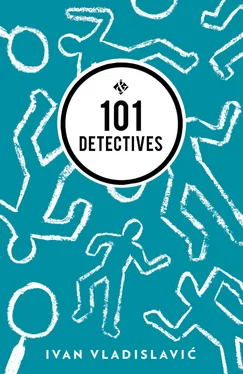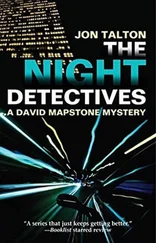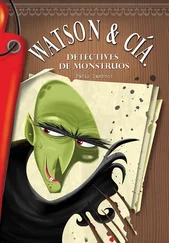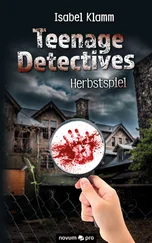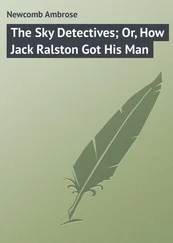Ivan Vladislavic - 101 Detectives
Здесь есть возможность читать онлайн «Ivan Vladislavic - 101 Detectives» весь текст электронной книги совершенно бесплатно (целиком полную версию без сокращений). В некоторых случаях можно слушать аудио, скачать через торрент в формате fb2 и присутствует краткое содержание. Год выпуска: 2015, Издательство: And Other Stories Publishing, Жанр: Современная проза, на английском языке. Описание произведения, (предисловие) а так же отзывы посетителей доступны на портале библиотеки ЛибКат.
- Название:101 Detectives
- Автор:
- Издательство:And Other Stories Publishing
- Жанр:
- Год:2015
- ISBN:нет данных
- Рейтинг книги:4 / 5. Голосов: 1
-
Избранное:Добавить в избранное
- Отзывы:
-
Ваша оценка:
- 80
- 1
- 2
- 3
- 4
- 5
101 Detectives: краткое содержание, описание и аннотация
Предлагаем к чтению аннотацию, описание, краткое содержание или предисловие (зависит от того, что написал сам автор книги «101 Detectives»). Если вы не нашли необходимую информацию о книге — напишите в комментариях, мы постараемся отыскать её.
and
, invites readers to do some detective work of their own. Each story can be read as a story, but many hide clues and patterns. Whether skewering extreme marketing techniques or constructing dystopian parallel universes, Vladislavic will make you look beyond appearances.
101 Detectives — читать онлайн бесплатно полную книгу (весь текст) целиком
Ниже представлен текст книги, разбитый по страницам. Система сохранения места последней прочитанной страницы, позволяет с удобством читать онлайн бесплатно книгу «101 Detectives», без необходимости каждый раз заново искать на чём Вы остановились. Поставьте закладку, и сможете в любой момент перейти на страницу, на которой закончили чтение.
Интервал:
Закладка:
I did not have the time or the energy for any of this. When I called the Salvation Army to come and take away the furniture, I stacked the trunks in the middle of the floor, ready to go.
The thought of never seeing them again made me sad. I thought of taking a picture with my cellphone. Instead, I fetched a notebook and copied out the labels on the metal trunk, faded yellow rectangles with outmoded typefaces in pale blue and red.
The first read:
TRANSPORTS INTERNATIONAUX
D. FREICHE-PRIM
PARIS
And the second:
SERVICE EXPRESS
M. Thos Cook & Sons
30 Strand Street
Cape Town
PWL 1729 Bertrand T—
D. FREICHE-PRIM
3, RUE ELISA LEMONNIER
PARIS (XII e)
--
68, BOULEVARD DES DAMES
MARSEILLE
Weighed against the mass of words the trunks had contained, these few lines seemed hopelessly inadequate. What a useless historian I am! I nearly tore the page from my notebook and threw it away.
The Salvation Army lorry looked like it came from the 1950s. It was not a truck but a lorry. The Salvation Army shield was painted on the side and there was a clattering roller door at the back, which the driver and his helper flung upwards between them to expose a gaping space that smelt of metal and sweat. The space was empty except for some brown hessian sacks and a huge spill of webbing straps like kelp washed up on a beach. The two men appeared to be in period costume to match the lorry: the young one looked like a social worker, fit and healthy, smooth-skinned and crisply dressed in blue jeans and a checked shirt. The older one looked like a survivor, someone who had come through the ranks at the Salvation Army, an old soak who had pulled himself together. He had pitted cheeks and a worn brush of dirty blond hair; the tail of a mermaid, coloured the dirty green favoured in the days before there were tattoo parlours in the malls, showed under the sleeve of his T-shirt. The two of them fell on the furniture with glee. They practically ran it out to the lorry and flung it into the back. They did not bother with the straps or the sacks, as if they had decided there was nothing here that would not withstand a bit more wear and tear. Did they want everything? I asked, suddenly ashamed of my greasy couch and scarred TV trolley. Did people even use such things any more? Yes, they wanted everything, the young man said, they would sort it out themselves. I had no wish to treat them as the garbage-removal men, they should feel free to leave what they didn’t want. No, everything, I should leave it to them. A suspicious thought crossed my mind: this stuff will never get to the Salvation Army. They’ll drive it to the nearest junk-dealer and exchange it for cash. In an hour from now, they’ll be sitting in the Booysens Hotel, drinking beer and eating T-bones. Did they want the trunks? I asked. They weren’t in great shape. They could leave them behind if they liked. No, everything, they said. They wanted absolutely everything. It was all good. Good to go.
The trunks went last. The young man took the metal trunk, which was more difficult to handle, and the older man the wooden chest. I followed them to the street, watched as they shoved these things into the lorry, and then the three of us went back for the travelling chest. They hoisted it onto their shoulders and carried it between them out to the street, and I walked behind like the only mourner.
It hardly needs to be said that the relief I felt when the Salvation Army retreated up Blenheim Street was misplaced. I had seen the end of the trunks — but I still had all the papers, packed into thirteen cardboard boxes marked Dr T and Claude.
I still had Louis Fehler’s trommel too, but that is another story.
When at last my house was sold, the future of Claude’s papers had to be decided. I called Margery, explained the situation to her and asked whether she wanted me to return what was left of Claude and Berti. It was an awkward call. I don’t think I’m going to write anything about them, I said. I’ve tried, really I have. I’ve picked through these things more often than I can tell you: I know them pretty well. And I just don’t know what to do with them. I could invent a character, perhaps. I’ve seen Claude sometimes, flitting through a corner of my mind in grey flannels and a flecked cardigan, with a book under his arm, I can’t see what it is, Handbuch der Judenfrage or The Nicest Girl in the School , I’ve seen him. But all these papers don’t help. He keeps disappearing behind them. They’re crying out for the attention of a historian.
The following week (it was February 2012) I packed the boxes into my car and drove them to Margery’s place in Westdene. Her boy Julian was there, twice as tall and broad as I remembered, and he helped us carry the heaviest boxes into the house. Margery hefted a couple too. But I made sure I took only the smallest. I had put my back out with all the packing and shifting of boxes and it had only just begun to heal.
Margery has always had a knack for living well, with a carefree, tumbledown grace you cannot copy from the design magazines. Her home felt open and welcoming. There was a lean-to roof between the house and the outbuildings, and a concrete slab with a table and chairs on it, perfect for eating outside. To one side stood the weightlifting bench where Julian must have done the work of broadening his shoulders. We sat around the table and drank tea. The garden was lush and green in the late summer sunlight. We might have been in the Italian countryside, although there was not a Tuscan folderol to be seen.
A box full of Dr T’s effects stood on one of the chairs and I fancied I could smell that compound of musty paper and cigarette smoke he gave off. At home here, I thought.
As we spoke about him, a strange thing happened. I began to see the outlines of his life more clearly than ever. I remembered the crossing to Dover, the garden in Brockley. The little girls on the omnibuses, with their straw hats and ribboned hair, and the striped bathing suits they wore on the strand at Wimereux and Rochebonne. The day on the jetty at Boulogne-sur-Mer when the wind blew Mama’s hat into the sea and Berti dived in to save it. What luck he was there to do it — he was so seldom at home. He was always sending postcards from far away, from Montevideo, Nassau, San Francisco. How excited we would get, but Mama would just turn them over with a sigh and stand them up on the mantelpiece.
I told Margery I had binned the books at the SPCA shop in Edenvale and she was relieved. Now that all these things were under her roof again, she remembered certain details: the photographs from Japan, for instance. Was it possible that Berti had led a second life? That he had another family somewhere? We spoke about trying to track down the relatives in Nova Scotia. But they’re fish packers, Margery said. What would they do with all this old junk? What could they do that we haven’t been able to?
Now that she mentioned them, I also remembered the photographs from Japan. I couldn’t recall seeing them on my last repacking of the boxes. Perhaps the thief who broke into the guest suite had walked off with a few things after all. I told her about the burglary and my efforts to keep the contents of the trunks intact over the years. While I was talking, another ghost appeared in the corner of my eye. This time it was Berti, strolling in the gardens of the Nagata Shrine at Kobe with Mr Nakamura. A brusque, self-confident European, with an imperial moustache and a polka-dot bow tie, a man for whom the world was not so much a playground as a marketplace.
It grew late and the air chilled. Julian went to work. Margery fetched a bottle of wine from the fridge and the conversation strayed to other things, the joys and sorrows of growing old, the long years of our friendship, the need to work and the wish to garden. As night fell, I noticed that Claude had left the table, although the box was still there on the chair, mute and unremembering.
Читать дальшеИнтервал:
Закладка:
Похожие книги на «101 Detectives»
Представляем Вашему вниманию похожие книги на «101 Detectives» списком для выбора. Мы отобрали схожую по названию и смыслу литературу в надежде предоставить читателям больше вариантов отыскать новые, интересные, ещё непрочитанные произведения.
Обсуждение, отзывы о книге «101 Detectives» и просто собственные мнения читателей. Оставьте ваши комментарии, напишите, что Вы думаете о произведении, его смысле или главных героях. Укажите что конкретно понравилось, а что нет, и почему Вы так считаете.
